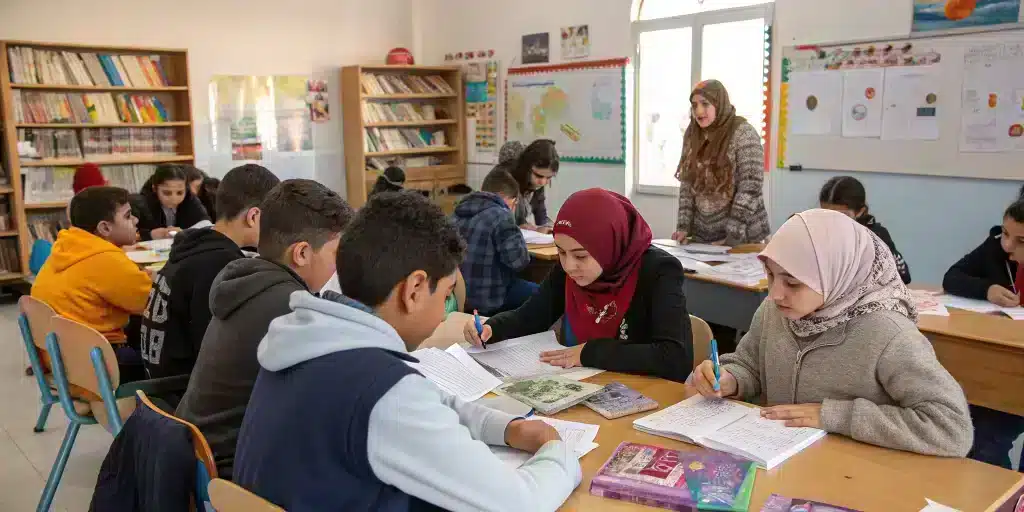Developing Essential Skills During Your Bachelor’s Degree in Türkiye
The Importance of Communication Skills
Effective communication is fundamental in both academic and professional contexts. Here’s how Turkish universities promote the enhancement of communication skills:
1. Diverse Learning Activities
Turkish universities offer a variety of coursework designed to refine both written and verbal communication. Students engage in assignments such as essays, reports, and presentations, which foster clarity and effectiveness in conveying ideas. This focus on communication is present across various programs, making it a cornerstone of the educational experience.
2. Collaborative Projects
Group projects and team-based assessments are common in many degree programs. These collaborative environments allow students to develop interpersonal and collaborative skills—critical components of effective communication needed in multicultural and professional settings. For instance, universities such as Aydin University and Istinye University emphasize teamwork as part of their curriculum.
3. Language Proficiency Requirements
Many programs in Türkiye, particularly those instructed in English or language-focused areas, require students to demonstrate English proficiency. Typically, international students must provide results from standardized exams like IELTS, TOEFL, or PTE Academic. This requirement ensures that they possess strong language skills that are essential for academic success.
4. Public Speaking and Active Listening
Participation in seminars, debates, and university events further enhances students’ public speaking and active listening abilities. These activities are crucial for effective communication, especially in diverse environments. Universities such as Medipol University actively promote these events, providing students with platforms to express their ideas confidently.
The Role of Critical Thinking Skills
Critical thinking is equally vital in a world marked by complexity and rapid change. Here’s how Turkish universities foster these skills:
1. Structured Problem-Solving Exercises
Degree programs in Türkiye are often structured around problem-solving exercises, research assignments, and case studies. These challenges require students to analyze information critically, evaluate alternatives, and construct well-reasoned arguments. Institutions such as Beykent University focus on developing these analytical skills.
2. Major-Specific Training
In fields like education and social sciences, students receive specialized training in both critical and creative thinking. This not only prepares them to tackle classroom challenges innovatively but also ensures they can apply reasoned judgment in various situations. For example, programs at Uskudar University emphasize these cognitive skills.
3. Engaging Curriculum Design
Curriculum designs in Turkish universities frequently incorporate discussions, reflective essays, and feedback sessions. These components promote independent thought and critical evaluation of diverse perspectives. Galata University and others encourage such interactive learning methods that push students beyond rote learning.
4. Integrative Assessments
Academic assessments increasingly require students not only to memorize information but also to synthesize it and apply it to novel situations. This approach nurtures independent thinking and enhances students’ capabilities in critical analysis, leading to stronger graduates prepared for global careers.
Supporting Academic Success for International Students
Transitioning to a new educational environment can be challenging, especially for international students. Turkish universities provide various support mechanisms:
1. Preparation and Foundation Courses
For students needing to enhance their academic English or subject-specific skills, many institutions offer preparatory courses. This support helps international students adapt quickly and thrive in the Turkish academic environment. Notably, universities like Halic University provide customized foundation programs to ease this transition.
2. Diverse Cultural Interactions
Continuous interaction with a diverse student body and faculty at Türkiye’s universities broadens perspectives, fostering cultural sensitivity and enabling critical engagement with global issues. Institutions such as Ozyegin University often encourage multicultural activities that enhance students’ empathy and worldview.
Take the Next Step with Study in Turkiye
Explore the enriching opportunities that await you by studying in Turkiye. Develop essential skills and forge a successful path for your future.

